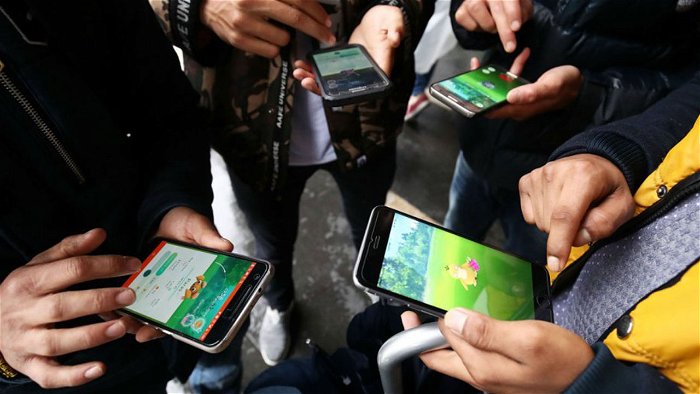The presence of mobile games is something everyone with a smartphone has to accept at some point. Whether you’re looking at the Google Play store or Apple’s App Store, the deluge of poor quality games and prevalence of microtransactions is enough to turn most potential players away from the platform. Do not give into this fear, for amidst the bad and bizarre offerings are experiences that not only rival their console and pc counterparts, but many that are unique and novel.
First we should address the elephant in the room: Pokémon GO. The first mobile entry in everyone’s favourite game series about “catching ‘em all” was extraordinarily popular for about a month (maybe two). During the height of its popularity, Pokémon GO provided an unparalleled experience both in terms of gameplay and social interaction. Other games have brought people together, but this seemed the unite everyone everywhere, lurching so far into popular culture that even people who had never played the source material were taking to parks and paths in search of elusive pocket monsters. Whether you enjoyed the game or not, one thing is undeniable: it was something completely unique to mobile gaming. Some aspects of the game, namely its mobility, could be emulated on a portable gaming console, but its GPS functionality, low barrier to entry, and mass market appeal are traits solely found on the phone.

Other games allow a player to devote relatively small increments of time to them while still having a positive experience. Reigns casts the player as the ruler of a kingdom, making choices as if they were perusing Tinder profiles with a simple swipe left or right. The writing in the game is engrossing enough to hold one’s attention, but short enough that it can be put down relatively easily. This makes the game perfect for long checkout lines and trips to the restroom. There is something ridiculously satisfying about embarking on a grand crusade from behind the stall door.
Some mobile games seek to make up for their simplified gameplay mechanics by presenting the player with even more enthralling story beats that emphasize the importance of a player’s choice rather than dexterous button manipulation. King of Dragon Pass provides a master-class in this ideology, offering deep lore that rivals the eldritch tomes peppered around any Dragon Age title, as well as interesting choices. I once attacked a city of duck people with dinosaur riders. It did not end well.
For players craving a little ARG in their narrative experience, the relatively young Lifeline series has become a powerful presence in the mobile arena. These games are packed with interesting writing and difficult choices that often seem to affect the overall story of each adventure. The premise of each entry is that some person in a dire situation has managed to contact you for help. This is spread out through the course of your day and is not terribly dissimilar to having an extended conversation with a friend via text. Sometimes it will be annoying, sometimes it will be a welcome distraction from your work day, but it will always be fairly interesting. It even manages to mirror that sense of personal dread you get when you send someone some bad advice and don’t realize it until it’s too late. At least it did for me; I almost killed my digital friend’s digital dog! There are already several entries in this series, and they’re often inexpensive.
For people less concerned with story than they are with game mechanics, the mobile platform excels in strange, brain-bending puzzle games. While the ever-popular The Room series is super pretty, it often devolves into a mess of random, frustrated taps and pokes. I would be more inclined to point puzzle-loving players toward games like Blek, which tasks players with drawing simple strokes that will be repeated to hit certain points on the map, or Prune, a serene game about trimming trees and making things bloom. Both of these utilize precise touch mechanics to great effect and are visually appealing enough to make everybody seem erudite and cultured.

Finally, there are enough virtual boardgames for whatever itch you’re looking to scratch. It’s likely that you already know where you stand on boardgames, and the selection will appeal to any fan. Those that only dabble in dice rolling and card drawing will find Monopoly, Checkers, and even Catan to pass the time while more serious players can check out Carcassone, Agricola, and even Galaxy Trucker for longer play sessions. All of the games I have mentioned also have solid applications with multiplayer functionality for challenging friends. Waiting for food to arrive at a restaurant becomes much more bearable when you can whip out something like Splendor with no setup or cleanup to worry about.
Mobile games have a nasty stigma of being exploitative cash-grabs engineered to appeal to the lowest common denominator, and that’s true for a lot of the games out there. The lack of moderation regarding rating tends to make popular games stay popular while other games struggle to get noticed. Mobile games can appeal to people of all stripes, from the casual to the serious. For all of the games I have covered there are even more that I haven’t touched on at all, or even played. There’s a host of adventure games, RPGs, even some solid action games around, you just have to get out there and find them.



